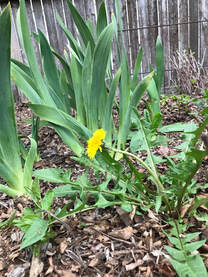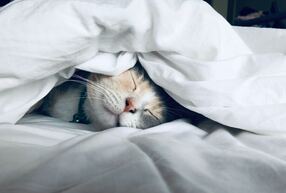
When you see a dandelion, do you think, “oh no, a weed?” Weed is a term we use to label plants we have decided are undesirable. Another definition is a plant we have not yet found the virtues of or have forgotten its value. Do you believe that nature would spend the energy and resources to evolve a plant that was not useful?
Dandelions are food. People used to forage dandelions in the spring for their nutritious greens, blossoms, and harvest their roots in the fall. Today, you would only want to pick dandelions if you were certain they were never sprayed with chemicals or herbicides. I harvest dandelions from our garden and use the greens in salads. You can find recipes that use dandelions sautéed, in salads, and jellies. The blossoms can be used for making syrup and cookies. The root can be dried and used for teas.
Before refrigeration and advances in transportation, people had to rely on their local environment to sustain them. Shipping was by boat and by horse and wagon. People may have more easily understood the importance of protecting their environment so that the plants and animals could thrive.
Bees will thank you for making peace with a few dandelions as they look for pollen. More bees mean more food since we need bees to pollinate our plants that give us fruits and vegetables.
The hardy root of the dandelion breaks up the heavy clay soils and allows oxygen to get to roots and the soil’s bacteria. That reduces the need to aerate that lawn.
The bees and insects need diversity in their diet just as we do. Lawns are the second or third largest monoculture in the United States. Our green lawns require water, petroleum-based fertilizers, and pesticide and herbicide to keep that green appearance. But what is the cost to our environment of a weed-free lawn?
More biodiversity everywhere is what the earth and her bees, insects, birds, and wildlife are crying for. Are we willing to dedicate part of our lawn to allow more biodiversity into our lives with appreciation and thankfulness?
We are a part of the web of life. All life is connected.





 RSS Feed
RSS Feed